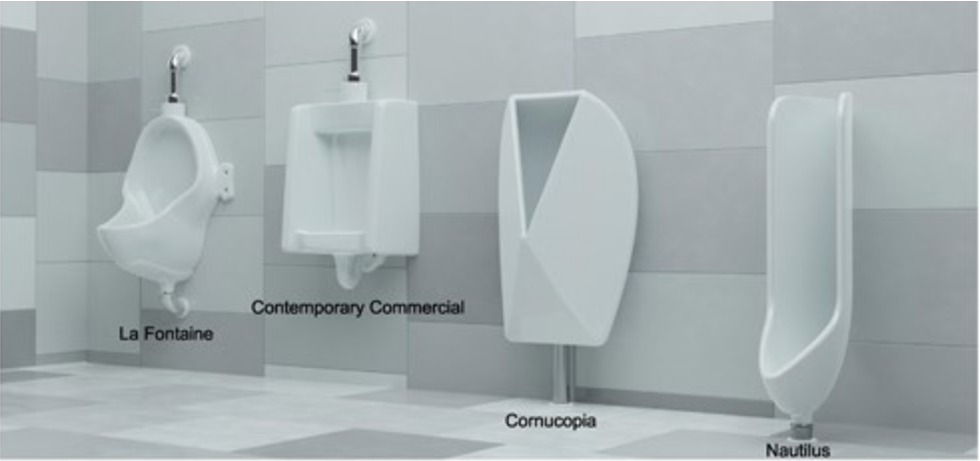As the refugee crisis worsens, civil society is stepping in where governments are failing. Mobilization has been especially massive in Germany, where authorities reported approximately 1.1 million asylum seekers in 2015 alone and refugee organizations cite a 70 percent increase in volunteers since 2011. But as the crisis wears on, some activists are plagued by doubts: Is all this volunteer work letting government off the hook? What is the “right way” of helping? Are some efforts causing more harm than good? Should more energy be directed toward a political solution?
For the third installment of the GOOD Dinnertime Conversation, this time in Berlin, we, along with host and writer Kati Krause, invited nine people from very different backgrounds involved in a range of refugee projects to share their experiences and insights. Katharina Dermühl heads the marketing team at Kiron Open Higher Education, which provides refugees with free access to higher education, and founded Migration Hub, a co-working space for those tackling mass migration-related challenges. Mareike Wenzel is an actress and core member of Moabit hilft, an emergency relief organization for refugees arriving at Berlin’s only registration center, the notoriously chaotic State Office for Health and Social Affairs (known as LaGeSo). Mareike Geiling and Jonas Kakoschke founded Refugees Welcome, an online platform that matches newcomers with Germans offering flatshare rentals—a concept so successful that it now operates in nine European countries. Hamid Ehrari and Mohammad Yari inspired by their own experiences as recent arrivals from Afghanistan, launched the Arriving in Berlin app, an online map pinpointing resources for refugees in an otherwise unfamiliar city. Lastly, writers Sven Lager and Elke Naters founded Sharehaus Refugio as a community project that quickly evolved into a communal home for 40 people, including Malakeh Jazmati, a Syrian chef and television host who now holds cooking classes at Refugio and aims to be the first woman on German television wearing a hijab.
Mareike Wenzel: Before we get started, this whole idea of “good” should be discussed. You really can’t be “good.” We’re not good people. I joined Moabit hilft in the summer of last year, when the situation at LaGeSo got really bad and there was no help. There were 500 people sleeping outside with no water, no toilets, nothing. We’re still there trying to help people, but we’re also part of the system. And good things have consequences, too. Last week, I helped a Syrian family get into LaGeSo, but I had to say no to 10 other people waiting outside who didn’t get in. Am I a good person? No. I’m not saying I’m a bad person, but it’s not a one-sided thing.
Sven Lager: I think it’s more about doing the right thing than the good thing, and the emphasis is on do. I find it interesting that in Germany there’s a lot of discussion of what’s right and what to do, but only a few people who act. If there’s a crisis you have to act, not plan. It’s like what you’re doing, Mareike—you’re there, you help.
Kati Krause: So it’s a moral imperative?
Naters: Doing the right thing is what Ithink is right. But doing good is a judgment.
Mareike Geiling: Good is a pure thing, and we’re not “pure” people.
Wenzel: I find it very difficult to label myself, like, “I’m a good person,” or, “I’m doing something good or right.” I act in the moment, and maybe I find out later that what I did was completely inappropriate.
Krause: Why did you get involved with Moabit hilft?
Wenzel: Because we saw a need. I was born in this city, I grew up here, I know Berlin inside and out. I couldn’t believe this was happening here. I went to LaGeSo to see for myself, and I was shocked! I bought water, and people ran me over trying to get it. I was pushed to the ground. I felt really ashamed that this was happening in Berlin. This was when [Moabit hilft founder] Diana Henniges and I decided to do something about it, but it was nothing that was planned beforehand. In that moment I didn’t judge: “Is this right? Is this good?”
Jonas Kakoschke: Ours was also a pragmatic approach for Refugees Welcome. We thought: Here are people who have a spare room, and here are people who need a room—why don’t we bring them together?
Katharina Dermühl: As long as you help, it’s always good. When I was helping with the refugee situation in Greece, I couldn’t help everyone. But I knew that for those I did, I planted a seed of hope—and it was on a human level. If you do good, it grows. This is why I like pragmatic approaches. There’s a need, and we’re doing something. Maybe it turns out that what you do with Refugees Welcome prevents people from finding their own place, and you’re pampering them—looking at it from a very negative perspective. But in the moment it seems like the right thing to do.
Lager: The motivation behind it is much more interesting.
Dermühl: Yeah, are you doing it for yourself, or are you doing it for other people? To a certain extent, you’re doing it for yourself, because it gives you a good feeling, and you shouldn’t be ashamed of that.
Wenzel: But I see a danger that helping now turns into something that’s about yourself. I’m sure people want to help, but the “me” is more in the forefront. Just looking at Facebook and seeing posts about “me and my refugee.” It’s very belittling. A “refugee dinner,” a “refugee this,” a “refugee that”—it’s become a trademark. “Can I borrow a refugee for this project?”
Naters: People call us with ideas, like, “Do you have refugees for me so I can set up a refugee choir?”
Lager: Rent a refugee!
Krause: Mohammad and Hamid, what was your motivation? How did you go from seeing a need to doing something about it?
Hamid Ehrari: One year has passed since I arrived in Berlin. My case is still pending. I don’t have any documents, so I can’t travel or work. I was very tired, very nervous, very bored. So when this project came along I said, “Yes, I want to help and make myself busy.” We developed this map from our own and other refugees’ experiences: When we arrived in Berlin, how did we feel? What problems were we facing? The day I arrived I didn’t know my way to the hostel that LaGeSo sent me to. It felt impossible. But I speak some English so I sorted it out. After that, I couldn’t find German classes for two or three months. Silvia Fehrmann from Haus der Kulturen der Welt [“House of World Cultures”] came to the hostel with the idea for a map that would show refugees where they could go to vote or swim or play soccer. So we wanted to include more information: German classes, a doctor who can speak Arabic or Farsi, a doctor specifically for women, etc.
Malakeh Jazmati: Before I came to Germany, I was working in Jordan as a volunteer in the Zaatari refugee camp, and there was no organization helping the people. Normal people went to the camp to help. Maybe it’s a bad idea to act without planning, but what I saw in Jordan and Lebanon was too terrible. This winter in Jordan, people died from cold and rain, and now it will snow, and more people will die—there are no people talking about this on television. In Berlin, I don’t see people dying.
Wenzel: But you can’t compare Jordan to Germany!
Geiling: That’s a good point. You can’t compare helping here and helping in Syria, in Jordan, in Turkey. We are talking about a very comfortable level of helping. We have our normal lives. We can eat, shower, use a toilet, meet friends, go on holiday. Look at us! Sitting here, around this table, having a nice dinner.
Kakoschke: I have thoughts like that. Of course, my job is to better the situation of refugees in Germany, but, at the same time, I see more countries closing their borders and people getting stuck. And I’m sitting here, having a nice dinner and talking about my grassroots organization. I never leave my comfort zone. Down the road, I don’t want to still be sitting here, saying, “I have a problem with this,” but have not done anything about it.
Wenzel: We need to put more pressure on politics. We won’t change anything unless the system itself is changed. So I find it very difficult to keep working on this “helper’s level,” which is necessary, but we have to make the whole movement political. We’re all so busy helping that we lack the energy to put pressure on politics. The borders are closed. We can run over to bring food and clothes, but it doesn’t change the fact that they’re still closed. We have to be more radical because what we’re doing at the moment is putting patches on open wounds.
[quote position="full" is_quote="false"]The refugees aren’t the problem; the system is the problem.[/quote]
Lager: What Malakeh brought up is interesting. We’re often discussing how it makes a difference to do the small thing. These refugee camps in Jordan—ah, it’s too much! Why can’t we just help one family? I learned this in Refugio: It’s step by step, but make that one step! Choose one person in a refugee camp and be their friend. Help them with their paperwork, help them adjust to life in Berlin. That’s the most radical thing you can do right now.
Kakoschke: To live and help in the system isn’t radical. What’s radical is to rethink the system because the system creates the problems. The refugees aren’t the problem; the system is the problem.
Krause: What do you think the biggest need is right now?
Naters: To place people into homes! Not to put them into mass accommodations, but to integrate them.
Wenzel: But also stop them from being deported! We can hold up as many welcome signs as we want—this is not a welcoming system. At the moment, our asylum laws are being made stricter and stricter.
Lager: The other day we had our first letter to a refugee at the house that said they had to leave the country. I realized that if we really stand behind Refugio’s mission, we have to promise that nobody will be forced out. We’re a community. If somebody is in danger at the house, we have to protect them. We started this journey; we can’t turn back now.
Dermühl: Going back to the idea of being radical—no one is talking about how much energy goes into dealing with the system, and maybe we should.
Geiling: Because we all know it.
Dermühl: We all know it, but most people don’t. They don’t know that refugees can’t go to just any European university. Smart, educated people say to me: “Why is Kiron [Open Higher Education] necessary? If a refugee wants to become an engineer, they should just go to university.” Well, they can’t! Maybe after three years, but people don’t even know that these challenges exist. We need to educate civil society in order to engage them.
Kakoschke: Some people don’t even know that refugees aren’t allowed to work.
Geiling: Not allowed to learn German, not allowed to work, not allowed to look for a flat...
Jazmati: For me, what has changed is myself. In Syria, I studied Arabic literature for four years and then left for Jordan because I was wanted by the Assad regime. I could not complete my studies. I had to start from zero, studying political science and working as a presenter on TV and radio. Then my husband decided to come to Germany. Again, I started from zero. At first I was so sad—traveling for a second time and now another language, another culture. It was so difficult. But then something changed, and I told myself: You can do it! Don’t be sad! This language is difficult, but you can learn! I want to tell all the Syrian women: You can do it. You can change every bad thing to a good thing.
Mohammad Yari: But we have to act now. We don’t have a lot of time. You don’t need to learn how to help. It belongs in your mind, in your heart. I’m translating for people at LaGeSo because I can speak Arabic, Pashtu, Urdu, Persian, Greek, and Turkish—I’m volunteering to do what’s needed. I’ve lived here one and a half years. I made Arriving in Berlin—that’s useful not just for refugees but for tourists, too. But I’m just as stuck with my problems. In my country, the Taliban would ask you, which side are you on? Here we don’t ask that; we just help each other. At LaGeSo, I don’t say, “I’m from Afghanistan. I’ll just translate for Afghans.” No! I can speak seven or eight languages; I can be a translator for all of them. A Syrian is my brother, and an Iraqi is my brother, too. I left my country; I left my motherland. Only one of my children is here with my wife and I. The other five are with my old mother in Afghanistan. Now that I’m here, I have to do something—not just for my children, my family, but for all the world.
Krause: What do you think about the role of the media? It’s obviously very important to spread the news of what’s happening, but how much of their job should be to inspire?
Dermühl: I’ve had this discussion with a lot of people in the media—whether it’s good or bad that the German media presents such a positive picture of what’s going on. At the end of the day, I think it’s good because it keeps the general opinion from focusing on what’s going wrong. The question is: Is it ethical to influence it in a positive way?
Naters: I think there can’t be too much good news.
Kakoschke: The media is important. From the beginning, Refugees Welcome was a political statement, and to make a big political statement, you have to talk to the media.
Wenzel: I get requests from press who want me to find their story for them, and I won’t. “I need a Syrian family that has already waited for a week outside LaGeSo.” No, I’m sorry. Either you’re interested in the people and the situation, or you’re not. On the other hand, I’m an actress and I just worked in Georgia for two months. There, everyone is like, “Germany is so good with refugees!” I see that as a problem because Germany manages to create the image to the outside world that we’re the good ones, but lots of things are going badly. The press films these welcome events at the stations, but no one is even interviewed. You don’t see where they’re brought afterwards. You don’t see the people deported after three weeks. You only see that they arrived! Now everything is fine! It’s not mentioned that half of these people will be sent away because they don’t fit the new German laws, or that they’ll probably be sleeping on the streets. It’s just a nice picture of happiness and positivity.
Dermühl: I agree that there’s a lack of information, and the coverage is too positive, but it’s important that optimism is shown not only to the German public but also elsewhere. I’m not saying you should ignore what’s going wrong, but don’t talk down the positive image [of German outreach to refugees] that’s presented in the media. It has a much bigger influence than we think.
Krause: How have your lives changed since you started this work?
Wenzel: I met a lot of new people who have changed my life, but I also became more disillusioned. I often feel very helpless and angry. I have to be careful to question myself every day about what I’m doing and if it’s still the right thing for me. I don’t want to be in a position where I feel comfortable with what I’m doing. And even if I think I’m doing the right thing, is the outcome right?
Geiling: I’m more political. Political not in terms of being part of a party, but getting angrier. It’s a good mindset.
Dermühl: I get angry a lot, too, but I try to channel it into solutions. I used to focus more on the negative and be very critical of myself, but now I see the beauty of focusing on the positive and looking at the impact you can have. We all wish we could save the world, but you should never forget how important it is to make a positive impact on one person’s life.















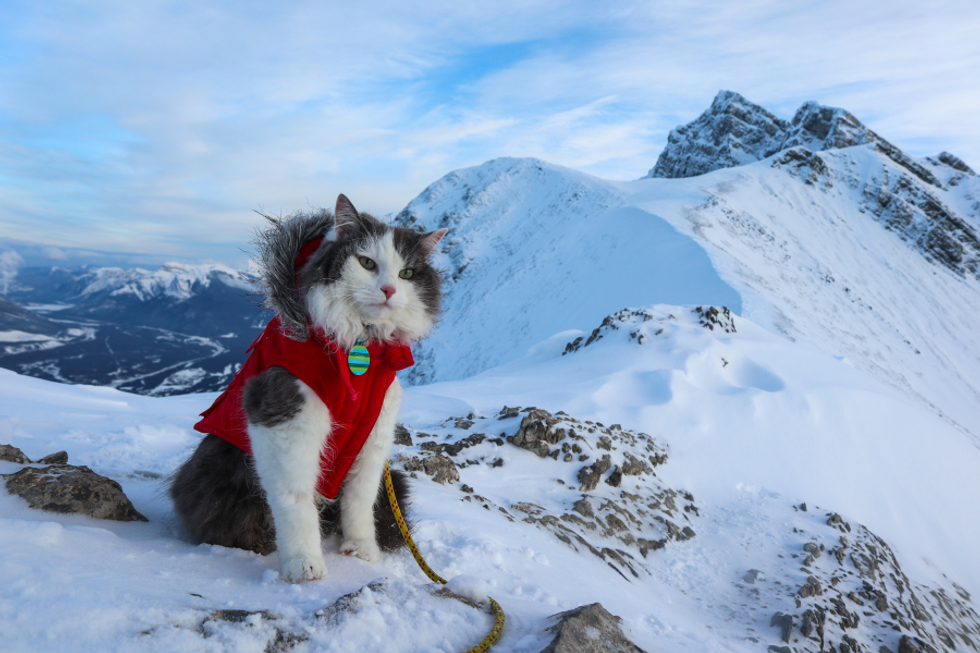 Let us all bow before Gary, the Internet's most adventurous feline. Photo credit: James Eastham
Let us all bow before Gary, the Internet's most adventurous feline. Photo credit: James Eastham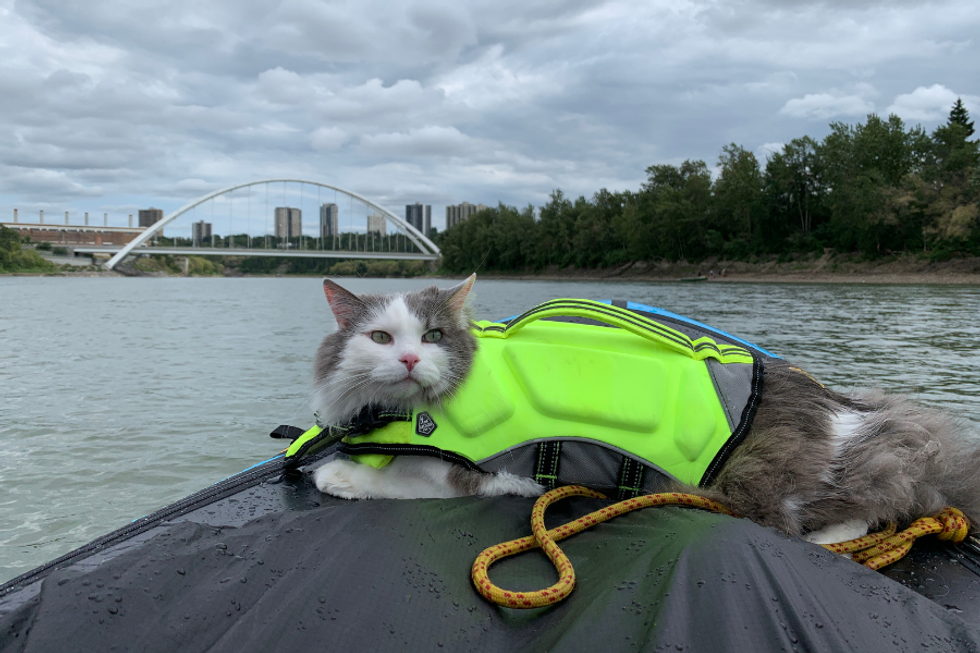 Gary the Cat enjoys some paddling. Photo credit: James Eastham
Gary the Cat enjoys some paddling. Photo credit: James Eastham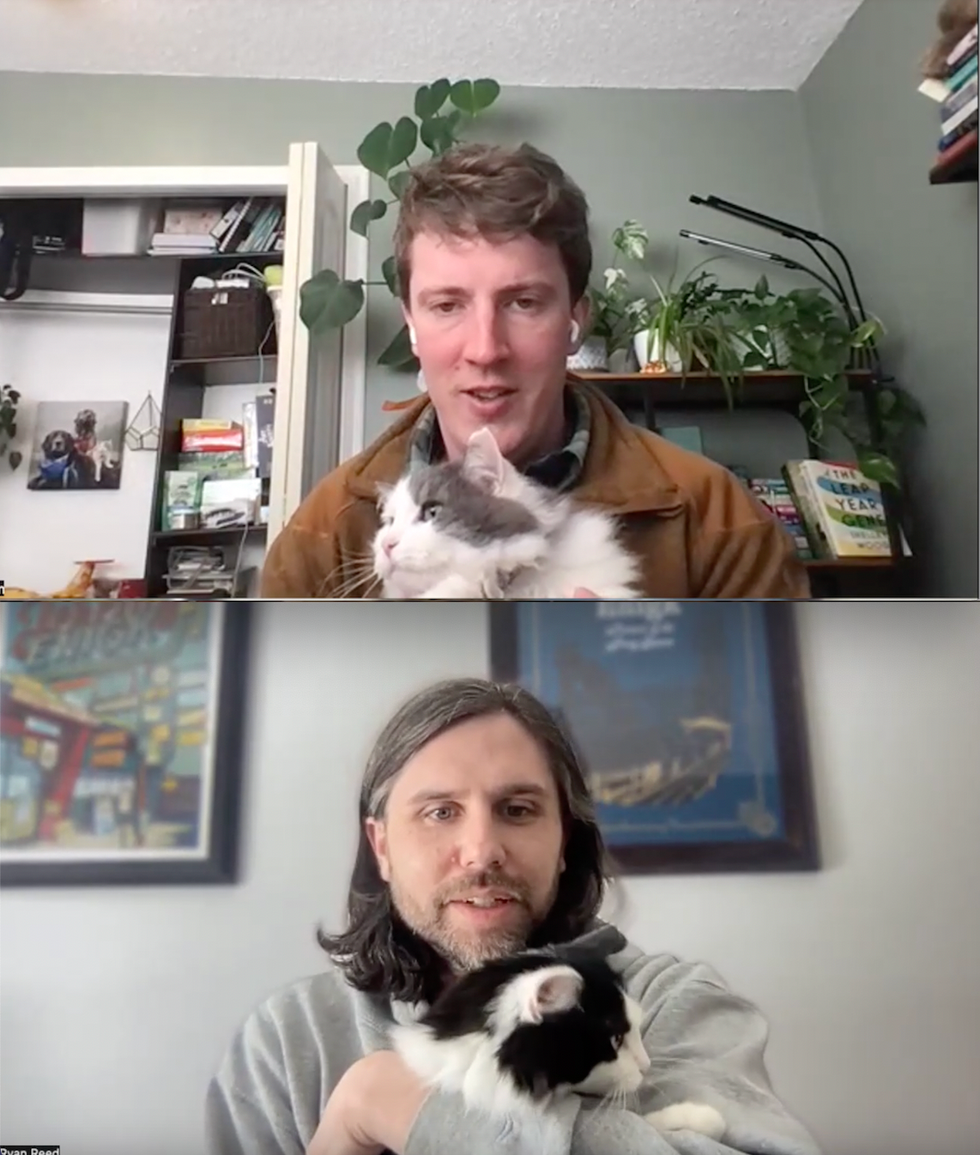 James and Gary chat with Ryan Reed and Tony Photo credit: Ryan Reed
James and Gary chat with Ryan Reed and Tony Photo credit: Ryan Reed


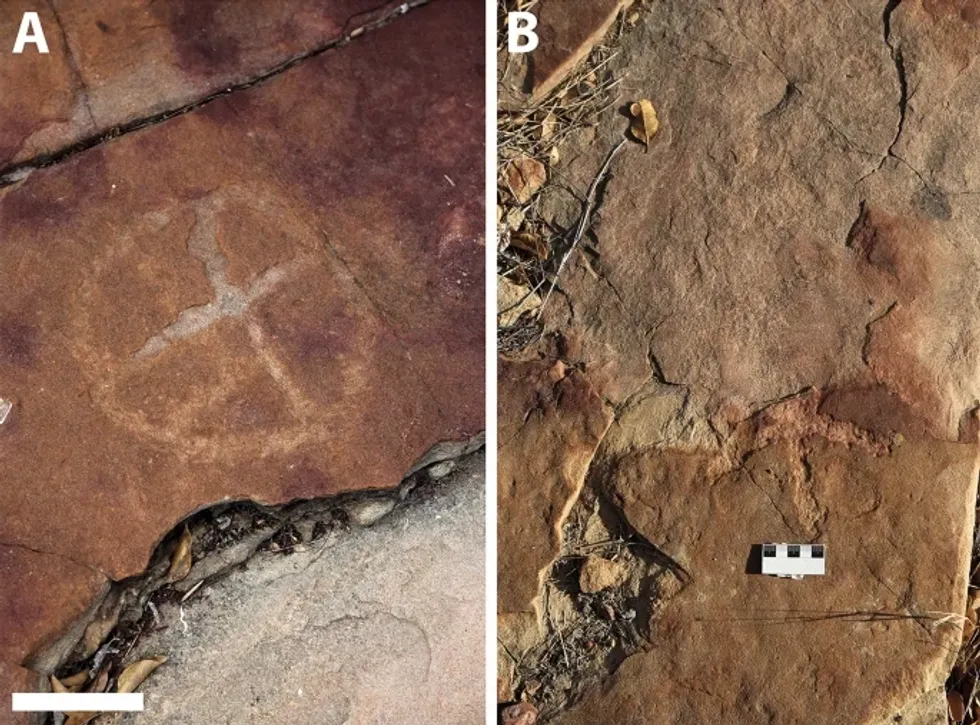 Rock deterioration has damaged some of the inscriptions, but they remain visible. Renan Rodrigues Chandu and Pedro Arcanjo José Feitosa, and the Casa Grande boys
Rock deterioration has damaged some of the inscriptions, but they remain visible. Renan Rodrigues Chandu and Pedro Arcanjo José Feitosa, and the Casa Grande boys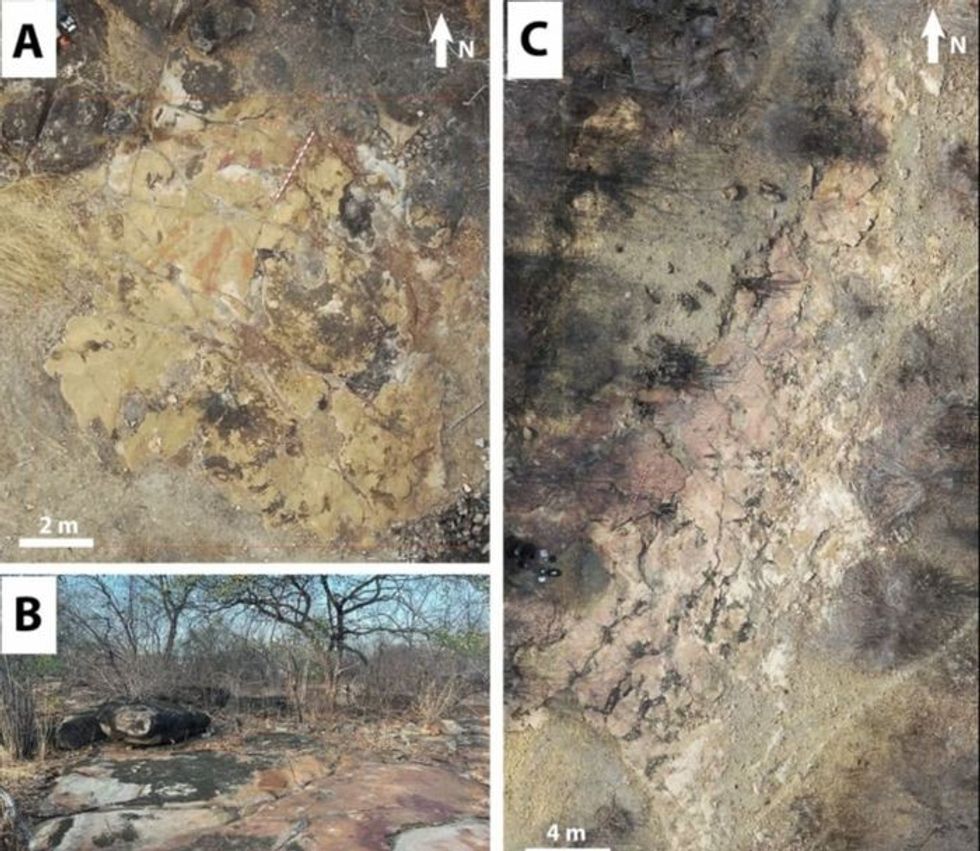 The Serrote do Letreiro site continues to provide rich insights into ancient life.
The Serrote do Letreiro site continues to provide rich insights into ancient life.

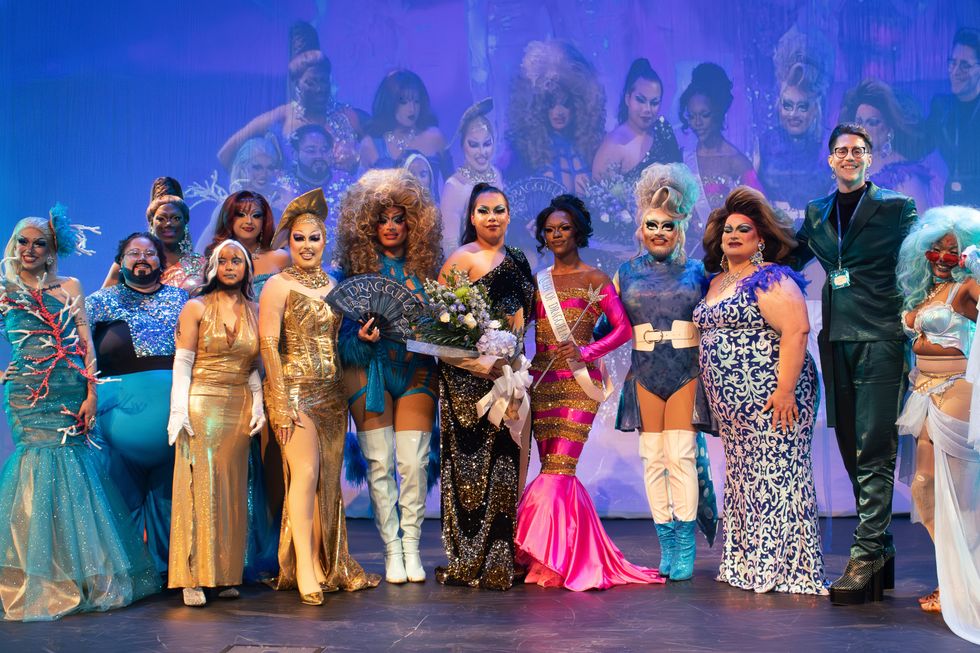 The contestants and hosts of Draggieland 2025Faith Cooper
The contestants and hosts of Draggieland 2025Faith Cooper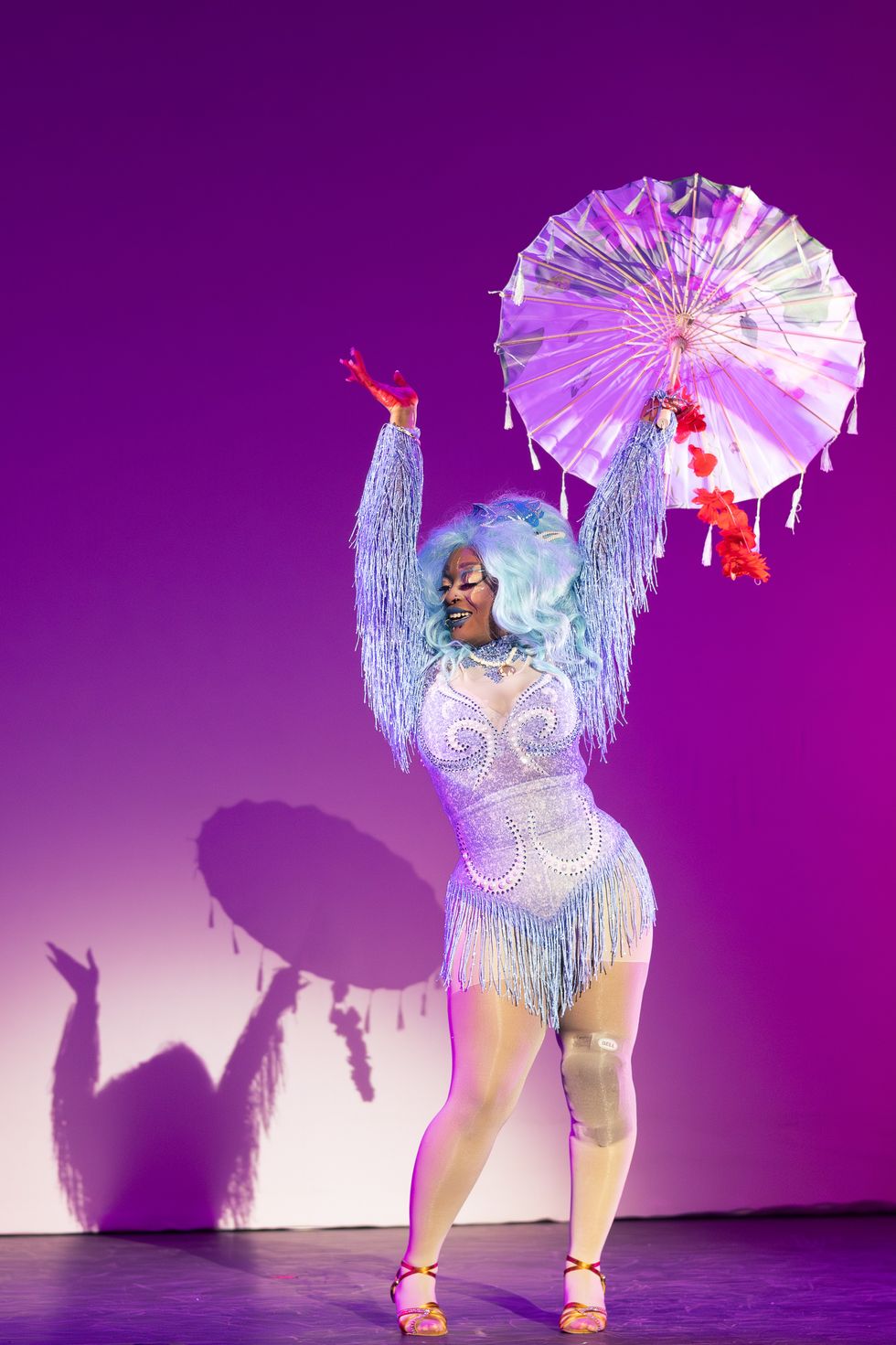 Dulce Gabbana performs at Draggieland 2025.Faith Cooper
Dulce Gabbana performs at Draggieland 2025.Faith Cooper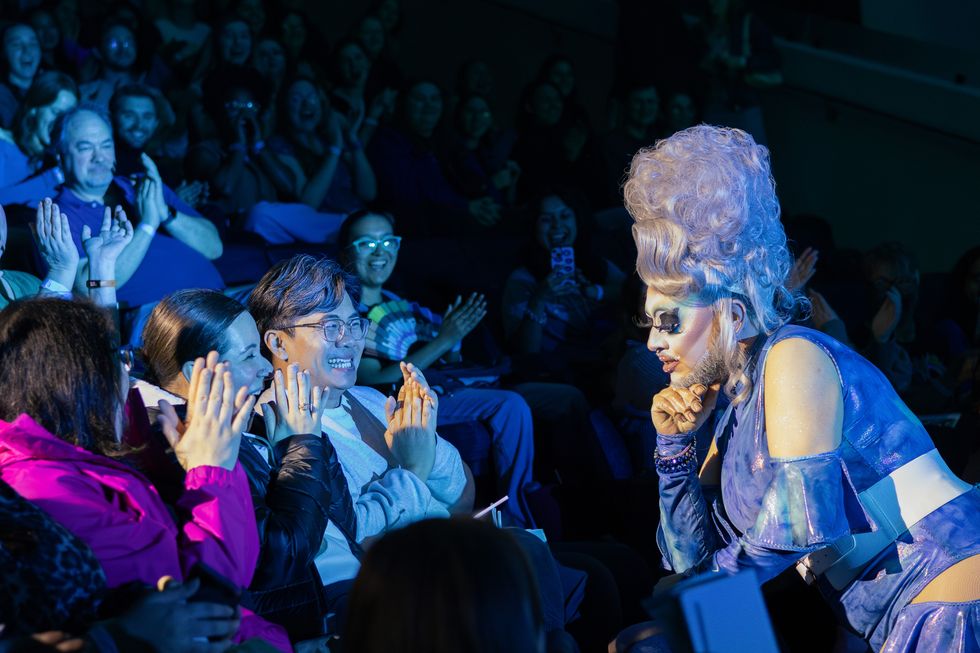 Melaka Mystika, guest host of Texas A&M's Draggieland, entertains the crowd
Faith Cooper
Melaka Mystika, guest host of Texas A&M's Draggieland, entertains the crowd
Faith Cooper


